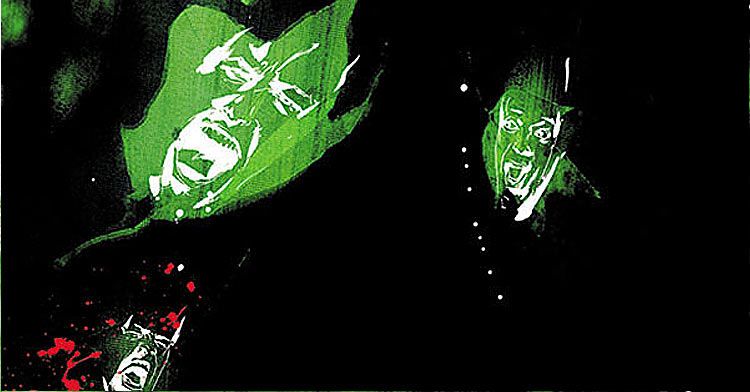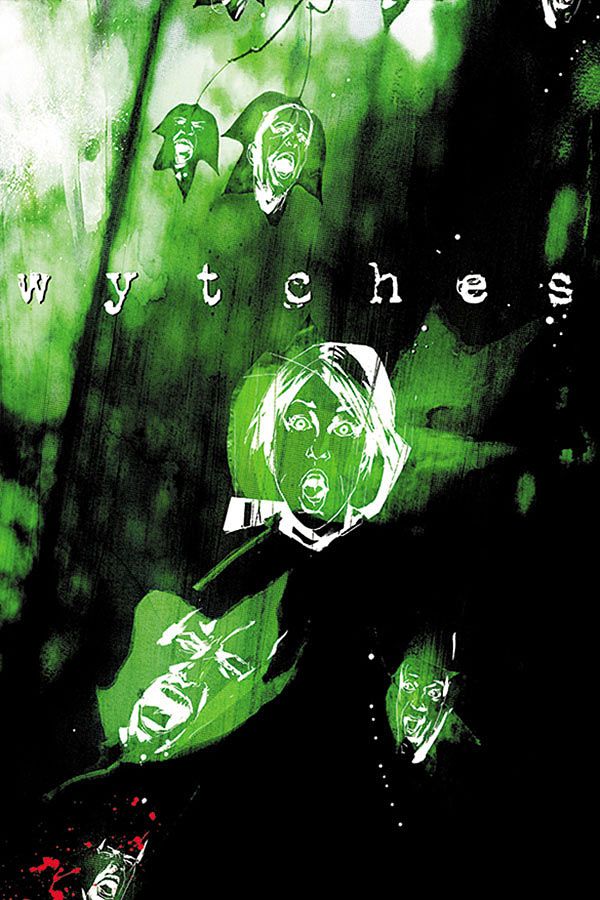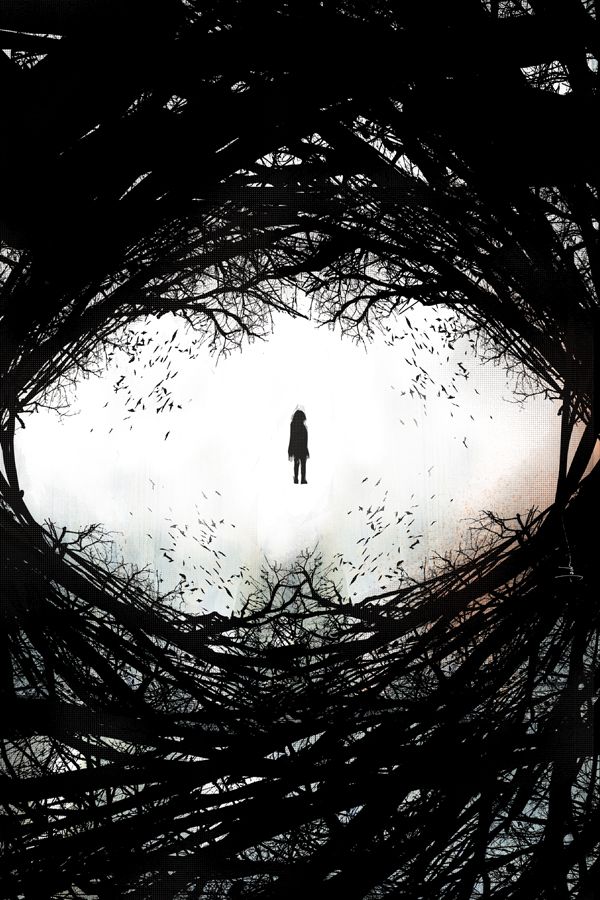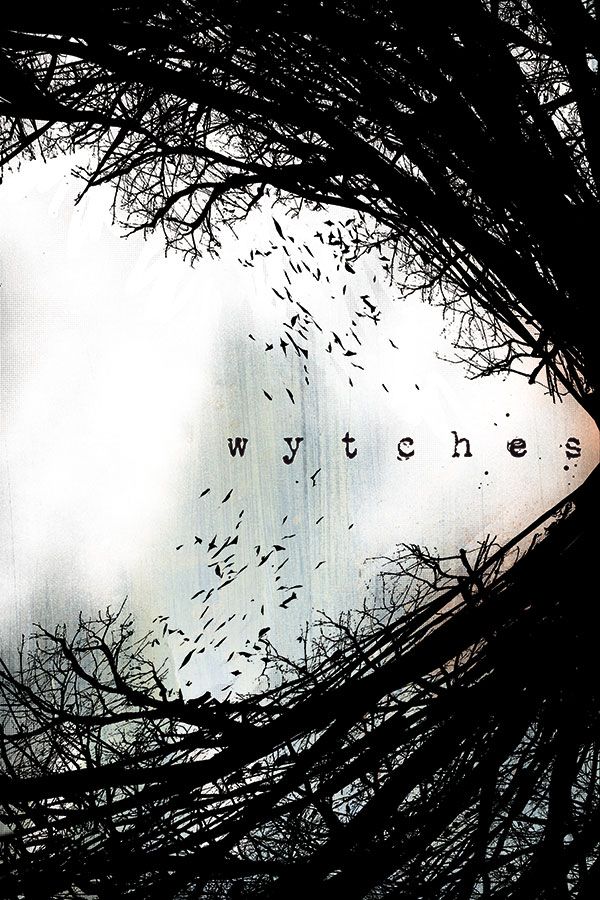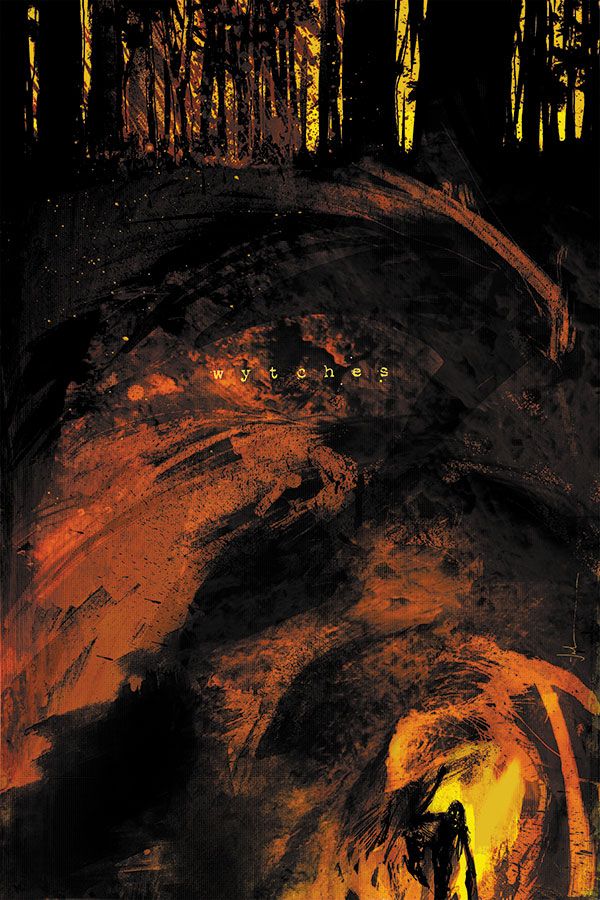Today, the first arc of Scott Snyder and Jock's acclaimed horror series "Wytches" comes to a close, as the Rook family faces down the terror that has stalked them for six issues. However, not all horrors lurk in shadows, and although young Sailor has faced down the twisted beasts that hide in burrows deep beneath the earth, she still must come to terms with finding out who pledged her to them, and why.
While "Wytches" is absolutely a supernatural series, the personal nature of Snyder's writing has brought a very relatable sort of fear into the pages of the Image Comics title -- one that pits family against family and makes readers question their own selfish capabilities. You see, the wytches will only come to those that possess a certain sort of inner darkness, one that manifests desires so strong that anyone and everyone around becomes a potential pledge. But while where there is evil, there is also good, will it be enough to save Sailor? Or will she become the wytches' next victim?
RELATED: Snyder Discusses Breeding Evil in "American Vampire: Second Cycle"
Snyder spoke with CBR News -- after we recovered from reading the latest chapter and spent a few minutes getting the sounds of chittering wytch teeth out of our head -- to talk through the past six issues. The Eisner winner shared the ways in which the confessional nature of the series has shaped his writing, what lies ahead for Sailor in the next arc and how he's been menacing his own children with a certain haunted object in his new home.
CBR News: You guys have wrapped up the first arc. Think back about two years ago, the first time we talked about "Wytches" -- what has changed for you in the story since then?
Scott Snyder: The change that surprised me the most was how confessional it became. I knew it was going to be confessional, and I remember saying to you that this was going to be the darkest thing I've written, but I was determined to go into material that would be embarrassing and uncomfortable for me about the things that are terrifying and unsettling about being a parent. Some of the elements that came out as we got closer to starting the book made me realize that I needed to go a little further. The degree to which I drew on autobiographical material was a little bit more discomforting and rewarding than I had anticipated. My story isn't Charlie's; I didn't ride a ferris wheel and throw a bottle at my kid, but I struggle with the things he struggled with in this arc. I've lashed out at my family. I think there are periods where I've been a dad I'm very proud of, and then there were periods where it was harder as a parent. I don't know that I've gone as black as Charlie, but there are a lot of moments that I think, if I look hard at myself, there are moments of parenting in my life that would make me just as uncomfortable as what Charlie does in the arc.
So that element was surprising, and the corollary to that is how I had a lot of difficulty in the second issue with how dark it was. I called Jock up, and I remember saying, "I'm not sure -- I think I went too far with the drinking and stuff he's dealing with," and Jock said, "No." He was extremely supportive about it. When the book came out and the readership -- who has been so incredibly supportive of it, crossing the line at Issue #6 with the number of readers we have was totally inspiring to everybody on the book -- and to see their reaction to what Charlie is dealing with was so surprising. "Wytches" was a much more personal story, more so than anything else I've done, and I expected a small readership and instead the fans have just been -- wow. The stories and letters they wrote to us, and the things they shared about connecting with Sailor and her anxiety and her bravery and with Charlie and his frustrations and hopes as a parent -- all of those things have been one of the most gratifying experiences that I've had as a writer.
Do you think it's that confessional nature that draws people in?
I hope so. I like to think these pieces I wrote in the back, pieces I wrote for myself and as a thank you to the readers, and the response to those seems to indicate that they were drawn in by some of the more confessional material. That's the way it was for me and prose. There were a lot of stories I wrote that were flashy and that I was proud of, stories that got me noticed in that world so that I could start my career. It wasn't until I wrote the title story of my collection "Voodoo Heart" that I knew I had something that was important to me in that story, which was largely about what it was like for me when I first met my wife and knew she was a person I wanted to spend a lot of time for the rest of my life with. But I wasn't ready to admit it to myself at that point, and I was a very cruel person for a while to her and to other people, lashing out against that. I'm not proud of it, but that story is about that, and the desire to know if you're a good person or a bad person deep down. For me, it was that moment where I knew I was proud of the book. That was the heart of the book. To this day, I think that's a story people seem to like the most in that collection. I like to believe that it what happens in my best moments -- it doesn't mean everybody has to write things that are deeply embarrassing, but that you have to write things you're passionate about.
For me, I am admittedly a person that goes through periods where I'm not proud of myself, and I struggle with anxiety and depression. Sometimes I write books that shy away from that and are more about being brave, like "The Wake." And then I write other books, like "Wytches," about how dark things can get. It's reaching out for a connection in the world. I want a reader to read it and feel less alone. I want to address the same things that keep other people up at night. There's no greater feeling than when someone comes up to me and says they liked what I did in a book. It's true for "Batman," too. I love so many of the writers in superhero comics now, because you can see the interests they explore in their creator-owned work in their superhero work. "Batman" is about a lot of the same stuff that's in my other books -- struggles with mortality, the idea that his life might mean nothing in the face of history, if it all comes to nothing, if he loses, what does it mean for him never to escape. I try to go to those places that matter to me, weather they are myopic and self-absorbed or external things about the world. Ultimately, I hope those are the elements readers connect to, much more than with the monsters or cool gadgets or any of that stuff.
What was it like when you saw Issue #6, completed, colored and in your hands for the first time?
Oh, honestly when I wrote it and handed it to Jock and he sent it to me -- oh, man. One of the first things he sent me was the page where it says "Pledged is pledged." And I remember thinking that this was the issue. Sometimes you're coming in with a series and it's like you're in a plane and the landing gear isn't quite working, but you think you've got it. With this, I knew it was the right thing when I finished it and started to see the art. Being at the end is such a relief. It was tough to write, in bad and good ways, and it was tough for Jock to draw. Jock has been my friend for a long time, and to be clear, he took a chance on me when I was nobody. He signed on to do "Detective Comics" with me for a year, and I had nothing under my belt, maybe an issue or two of "American Vampire" which people were reading for Stephen King. Jock was a big name at that time, and he bet on me and took a chance on me when I told him the story for "Black Mirror." He had no reason to, other than being a good guy and liking the story, so coming to the end of this arc with "Wytches" was very, very gratifying.
And that's the thing about comics. Best case scenario, you get to make things with your friends that you're proud of, that you would make even if nobody bought them. It's a great feeling, and we are so excited for the second arc.
From what you've told me, the second arc is going to follow Sailor on a new chapter in her life.
Yep, it's largely about Sailor finding The Irons, the people that have been pursuing burrows and wytches for many years, nearly to have been destroyed by them in the witch trials and all of these different moments in history. But ultimately, the arc is about what it's like to let go of your parents, of your past and of your family. For people my age, a lot of that has to do with watching your parents get older and losing them. For readers that are Sailor's age, it speaks to that same feeling of a formative period where you realize you're separate from your parents and you have to let them go. The plot has a lot of horror about Charlie and what happened to him, but it also gets into the mythology a lot.
The thing that was compelling about writing this series was that no matter where we go, where we're at, the wytches are scary to me because they are just a reflection of us. They never come after you unless somebody pledges you, but they give you this abomination, this way to live outside the natural order, of getting things you shouldn't have. They know you don't want to die, don't want to be with the person you're with, things that in real life you have to cope with, but they give you a shortcut, a thing you shouldn't have, but what you have to do is show how ultimately selfish you are. To me, that will always be scary. It speaks to our own shortcomings and selfishness, and I can relate to that.
We see really satisfying conclusions for many of the relationships -- Sailor and Charlie, Charlie and his wife, Sailor and the town. Which moment of triumph felt the best to finally get on the page?
Sailor, definitely. Just by virtue of the plot and the construction of the story, she had to be in a down place for most of the series. She's being heroic and she's fighting, but she couldn't flex her muscles as the hero of the series yet. We wanted to surprise people with that. For us, this was really her origin story. This is the story of how she becomes someone that takes on tremendous burdens in the following arcs and becomes someone very important. The emotional things she goes through in the second arc are surprising -- it's so easy to write her as a character that isn't a kid anymore, even though she's just a little bit older, but she's such a capable person. So her moment at the end of Issue #6 was just announcing this hero, and it was great. This is where she begins.
Was there ever a moment where you toyed with the idea of killing a main character?
Yeah. In this arc in particular, definitely. We always knew Sailor would make it out. We never planned to move to a whole new family or anything, I love that format, but this is a story that focuses on different stages of growing up. We both felt like it needed a character that the readers could follow. A lot of the myths of witches in folklore center on children that are raised without parents and that sense of separation from your parents and going off into the woods, and the people in the Irons she meets will have a large contingent of children that were pledged by their parents and got away. So there's this sense of a family she makes for herself, and how she finds her way in the world.
When does the next arc start up?
We start working on it this summer. It'll probably start coming out late fall/winter!
In your final closing letter, you talked about how you processed many of your fears. Is there anything you can now say doesn't scare you like it used to?
Yeah. Honestly, putting some of this ugliness out there on the page doesn't scare me as much. I tried to do that at different times, maybe less starkly than I did here, and seeing the comics community being so receptive and responsive and so eager to be confessional in return made me less hesitant. I can go places on the page that can be uncomfortable now. I've always tried to do that, but this is the furthest extension of that.
One last thing, speaking of things that scare you, is that you bought a new house! I saw the picture you shared of a haunted lamp post in your front yard. Tell me about that!
It's from a ghost town that closed down on the North Shore of Long Island. The previous homeowner moved it here, and it's a great way of terrorizing the kids. We tell them that if they aren't good, the lamp post will get them. They equate it being from a ghost town with being literally haunted.
The funny thing about this house, though, is the trees. I'm a city boy. I grew up in New York on the lower East Side, and this house we've moved to is surrounded by huge, ivy-covered trees, everywhere. At night, my wife is always like, oh, it's so nice and quiet, but for me, it's witch territory. When I go out to the car at night, I turn on all the lights. I'm not used to the solitude. I'm afraid to go out and get the groceries and I'm like, "Why did I write this book?"

